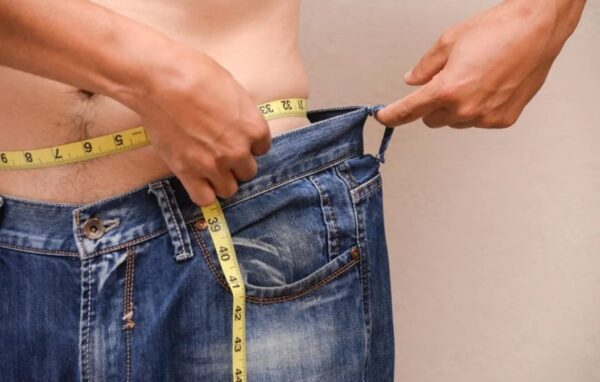Lifestyle
How long it takes to lose weight: Everything you need to know

Weight loss is a frequent aim, whether you want to lose weight due to your health condition or for a special reason.
A person who’s following a specific lifestyle would certainly also want to know at what time he will lose weight, if he/she begins to burn through exercising or diet from that extent onwards.
You may want to know what a healthy weight loss rate is in order to set reasonable expectations.
Below are some of the essential things you need to know about what to expect when you start a weight loss journey, and how long it could take to see the actual results.
The weight loss process
The body happens to lose weight when one consumes fewer calories than they burn per day. In contrast, weight gain occurs when you consume more calories than you expend. The calorie-containing meal or beverage you consume contributes to your total calorie consumption. However, the quantity of calories you burn each day, also known as energy expenditure or calorie expenditure, is a little more tricky.
But most importantly you need to remember that in order to maintain your body weight, the number of calories you consume equals the number of calories you burn. If you want to lose weight, you must either consume fewer calories than you burn or raise your activity level to burn more calories.
1. Gender
The fat-to-muscle ratio has a significant impact on your capacity to reduce weight. Women have a lower Resting Metabolic Rate than men of the same height because they have a higher fat-to-muscle ratio than men. This means that while resting, women burn about 5-10 percent fewer calories than men. Men, on the other hand, tend to lose weight faster than women on a calorie-balanced diet.
2. Age
With the alterations in body composition, fat mass grows and muscle mass decreases are one of the many physical changes that occur with ageing. This alteration, together with other reasons such as your primary organs’ reduced calorie needs, adds to a lower Resting Metabolic Rate. In simple words older people have lower capability than the younger adults due to decrease in the resting metabolic rate.
3. Current body weight
The speed with which you lose weight may be influenced by your beginning body mass and composition. It’s crucial to realise that various absolute weight losses in different people can result in the same relative weight loss. While a heavier individual may lose twice as much weight as a lighter one, a lighter person may lose an equivalent percentage of their body weight.
4. Calorie balance
To reduce weight, you must generate a negative calorie balance. How quickly you lose weight is essentially determined by the size of the calorie deficit. Make sure your calorie loss isn’t too large, though. This would not only be unsustainable, but you’d also be putting yourself at danger for nutritional deficiencies. Furthermore, it may increase your chances of losing weight as muscle mass rather than fat mass.
5. Sleep
Sleep is perhaps the most yet critical aspect of weight loss. Sleep deprivation can stifle weight loss and slow down the rate of weight loss. You can simply realise that when binging, watching or partying till late certainly increases your craving for high-calorie, nutrient-poor meals like cookies, cakes, sugary beverages, and chips after just one night. As a result, persistent sleep deprivation has been associated with type 2 diabetes, obesity, heart disease, and a variety of malignancies.
Exceptions
Medical condition– Antidepressants and other antipsychotics, generously cause weight gain or impair weight loss. Hypothyroidism too, is the disorder in which your thyroid gland produces too few metabolism-regulating chemicals, can cause weight gain and delay weight loss.
Hereditary– The hereditary component is importantly related with overweight or obesity, which may affect weight loss.










